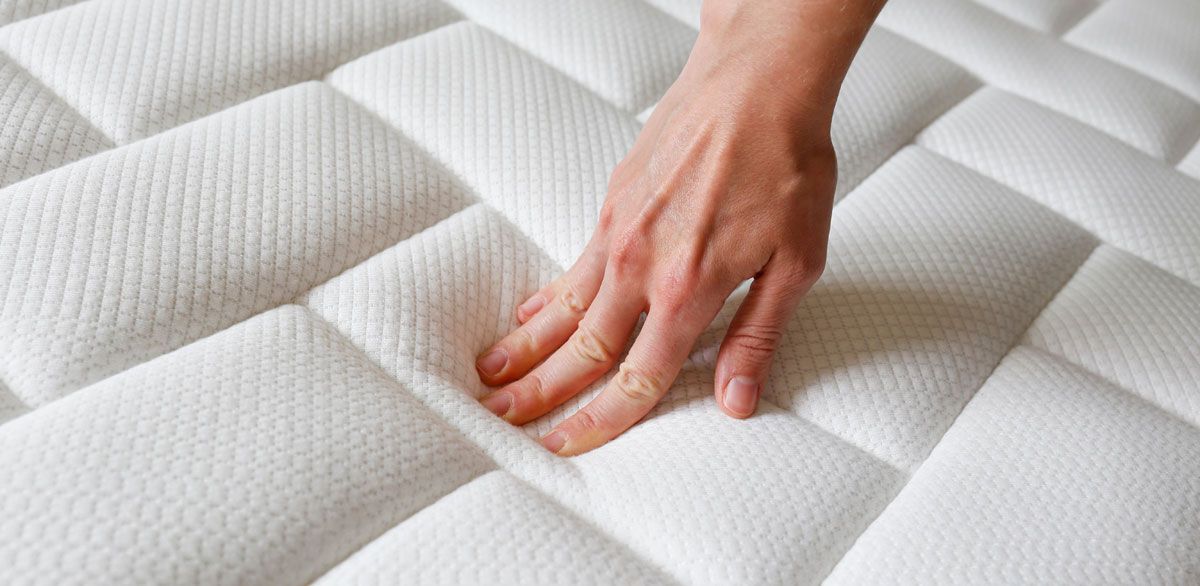
Coil construction remains one of the most important factors in how an innerspring mattress performs. Coil count and coil gauge are the two key specs that shape firmness, responsiveness and overall durability. These seemingly small differences in coil count and gauge can change how a mattress feels and how long it lasts.
What Coil Count Really Means
Coil count refers to the number of individual springs inside a mattress’s support core. A queen mattress might contain anywhere from 700 to 1,200 coils, depending on the design. In general, a higher coil count means more points of contact between your body and the support system. More coils can allow the mattress to conform better to your body’s shape and distribute weight more evenly.
However, coil count by itself does not determine quality. Two mattresses with the same number of coils can feel completely different depending on the type of steel used, the shape of the coil and, most importantly, the coil gauge.
Once coil count reaches a certain threshold, usually around 1,000 in a queen size, the benefits of adding more coils begin to flatten out. Beyond that, quality depends less on the total number of springs and more on how those coils are built and tuned.
A mattress with 900 well-made, properly gauged coils will outperform one with 1,500 thin, under-tensioned coils every time. Coil count is only valuable when the rest of the construction supports it.
Coil Gauge and Why It Matters
Coil gauge measures the thickness of the wire used to make each spring. The scale runs inversely: a lower gauge number means thicker, stronger wire and a higher gauge number means thinner, more flexible wire.
A 12-gauge coil is heavy, firm and built for longevity. A 15-gauge coil is lighter and softer, flexing more under weight. Most high-quality mattresses fall between 13 and 14.5 gauge. That range provides a reliable balance of strength and responsiveness and allows the mattress to contour without collapsing under load.
Many mattresses use zoned coil systems, mixing gauges for targeted support—firmer (lower gauge) coils around the lumbar or perimeter and softer (higher gauge) coils under shoulders or hips.
Coil gauge is one of the best predictors of durability. Thicker coils resist sagging, hold shape longer and offer better deep-down support, especially for heavier sleepers or shared beds. Thinner coils, while comfortable initially, can lose tension faster over time.
If you’re comparing two mattresses and one lists a lower coil gauge, that mattress will generally feel firmer and last longer, assuming all other materials are comparable.
How Coil Count and Gauge Work Together
Coil count and coil gauge influence each other. Increasing coil count usually requires thinner wire to fit more coils within the same mattress height. That’s why higher coil counts don’t automatically equal higher quality, because it often necessitates trading wire thickness for coil quantity.
The best designs balance both elements. A thoughtful mattress builder chooses coil gauges that provide long-term support and then uses just enough coils to deliver contouring without compromising strength.
Other Factors That Affect Coil Performance
- Steel quality: The purity and tempering of the steel influence how well a coil maintains its shape.
- Coil shape: Hourglass, pocketed or continuous wire systems each behave differently under load. Twilight Bedding uses designs that minimize motion transfer and improve edge integrity.
- Tempering process: Properly tempered coils retain their resilience longer, reducing the risk of early sagging.
- Edge reinforcement: Heavier-gauge coils around the perimeter help maintain support for sitting or sleeping near the edge.
Choosing a Mattress Based on Coil Construction
- Look for a balanced coil count: More is not always better. Focus on smart coil placement and distribution.
- Pay attention to gauge numbers: Thicker coils (lower gauge) indicate stronger support and better longevity.
- Ask about zoning: Variable gauge systems are a mark of thoughtful engineering.
- Consider overall design integrity: Steel quality, edge reinforcement and coil tempering matter as much as the specs themselves.
- Match coil characteristics to usage: Heavier sleepers, multi-user environments and commercial applications benefit from lower-gauge, denser coil systems.
A mattress that feels great on day one isn’t necessarily a great long-term investment unless the coil system underneath is built to handle years of compression and recovery.
Experience the Twilight Difference With Our Wide Selection of Mattresses
Coil count and coil gauge aren’t just technical details; they define the performance, comfort and life span of your mattress. When you choose a Twilight Bedding design, you’re choosing precision engineering, durable materials and craftsmanship that holds its shape long after other mattresses have softened or sagged.
Visit our Spokane Valley showroom or call (509) 926-2333 or reach our North Spokane location at (509) 413-2431 to learn more about our innerspring and latex mattress lines. Experience how precision coil construction delivers better sleep, longer durability and lasting value.






